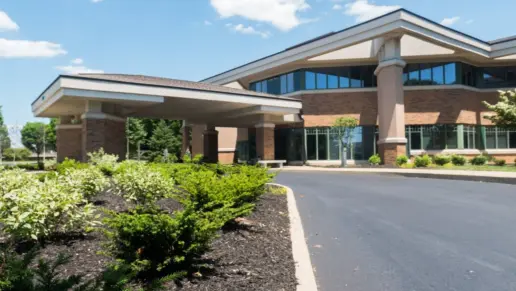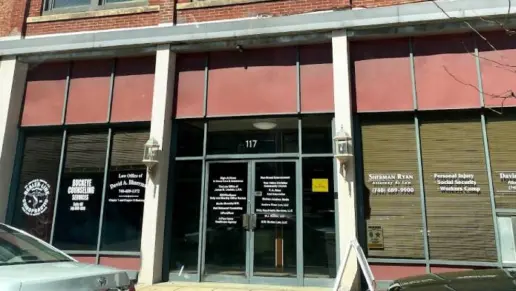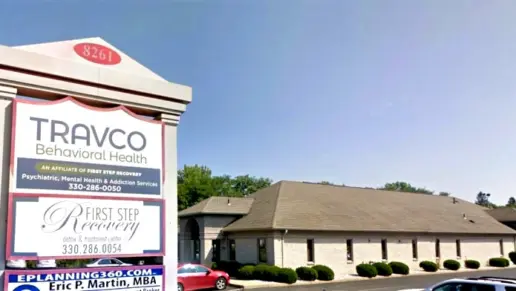About CommQuest – Alliance Detox
The Alliance Detox and Recovery Unit is located inside of the Aultman Alliance Community Hospital in Alliance, Ohio. It’s operated by CommQuest through their partnership with Alliance Hospital. Here, men and women have access to supportive care for substance use struggles they're facing.
In 2020, the partnership between CommQuest services and Aultman Hospital continued to expand and a withdrawal management unit was opened within the Aultman Hospital. This has helped offer more staff for the growing need for care in the community. It also means you’ll work with specialized and trained addiction recovery professionals in a timely manner without having to get on a waiting list. You can come in at any time of the day through the emergency department.
There’s an emergency room department here, where you can receive detox for an alcohol or opioid use disorder you may have. Following detox, you can start a treatment plan to overcome your addiction struggles.
Along the way, you’ll move through the withdrawal management unit where you’ll get introduced to the addiction recovery staff and start receiving medical and mental health services. Many people who begin receiving treatment here do so after they are admitted to the emergency department following an overdose.
Although this is a clinical, hospital setting, it’s often the only avenue for individuals and families who aren’t sure where to turn to for the care they need.
Other services you’ll find here include case management. The case manager you’ll work with will ensure you’re getting the appropriate therapies to support your recovery. If you have a co occuring health struggle, this might mean receiving specialized counseling so that you can understand how your mental health and substance use recovery goals are intertwined.
Latest Reviews
Rehab Score
Other Forms of Payment
Medicaid is a state based program that helps lower-income individuals and families pay for healthcare. Medicaid covers addiction treatment so those enrolled can use their coverage to pay for rehab. When a program accepts Medicaid the client often pays very little or nothing out of their own pocket.
Private insurance refers to any kind of healthcare coverage that isn't from the state or federal government. This includes individual and family plans offered by an employer or purchased from the Insurance Marketplace. Every plan will have different requirements and out of pocket costs so be sure to get the full details before you start treatment.
Self-pay involves paying for treatment out of your own pocket. You can use savings or credit, get a personal loan, or receive help from family and friends to fund your treatment. If you don't have insurance or your insurance plan doesn't cover a specific program, self-pay can help ensure you still get the care you need.
Financial aid can take many forms. Centers may have grants or scholarships available to clients who meet eligibility requirements. Programs that receive SAMHSA grants may have financial aid available for those who need treatment as well. Grants and scholarships can help you pai for treatment without having to repay.
Sliding scale payments are based on a client's income and family size. The goal is to make treatment affordable to everyone. By taking these factors into account, addiction recovery care providers help ensure that your treatment does not become a financial burden to you or your family, eliminating one barrier to care.
Medicare is a federal program that provides health insurance for those 65 and older. It also serves people under 65 with chronic and disabling health challenges. To use Medicare for addiction treatment you need to find a program that accepts Medicare and is in network with your plan. Out of pocket costs and preauthorization requirements vary, so always check with your provider.
Military members, veterans, and eligible dependents have access to specific insurance programs that help them get the care they need. TRICARE and VA insurance can help you access low cost or no cost addiction and mental health treatment. Programs that accept military insurance often have targeted treatment focused on the unique challenges military members, veterans, and their families face.
Addiction Treatments
Levels of Care
Treatments
The goal of treatment for alcoholism is abstinence. Those with poor social support, poor motivation, or psychiatric disorders tend to relapse within a few years of treatment. For these people, success is measured by longer periods of abstinence, reduced use of alcohol, better health, and improved social functioning. Recovery and Maintenance are usually based on 12 step programs and AA meetings.
Drug rehab in Ohio provides comprehensive treatment to address the physical and psychological needs of those struggling with substance use disorders. This may involve inpatient and/or outpatient care.
A combined mental health and substance abuse rehab has the staff and resources available to handle individuals with both mental health and substance abuse issues. It can be challenging to determine where a specific symptom stems from (a mental health issue or an issue related to substance abuse), so mental health and substance abuse professionals are helpful in detangling symptoms and keeping treatment on track.
Opioid rehabs specialize in supporting those recovering from opioid addiction. They treat those suffering from addiction to illegal opioids like heroin, as well as prescription drugs like oxycodone. These centers typically combine both physical as well as mental and emotional support to help stop addiction. Physical support often includes medical detox and subsequent medical support (including medication), and mental support includes in-depth therapy to address the underlying causes of addiction.
Programs

Clinical Services
Group therapy is any therapeutic work that happens in a group (not one-on-one). There are a number of different group therapy modalities, including support groups, experiential therapy, psycho-education, and more. Group therapy involves treatment as well as processing interaction between group members.
Contact Information
200 E. State St.
Alliance, OH 44601


